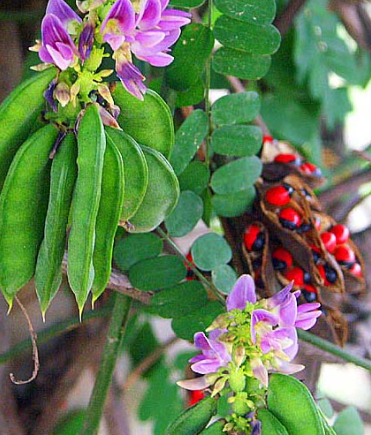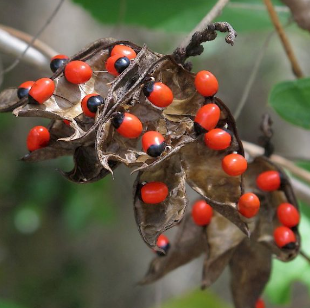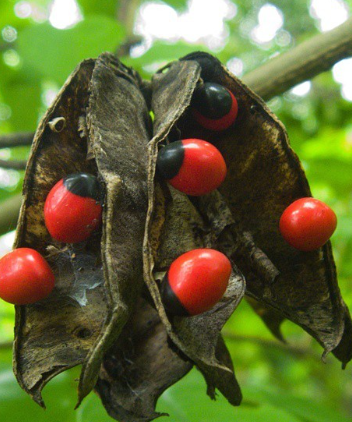Rosary Pea Plant
Abrus precatorius, known as Rosary Pea, is a hardy vine growing 1-3m, prefers sandy, well-drained soil, partial shade, and is highly medicinal but toxic.

Habit
Vine
Height
1-3m
Growth
Medium
Soil
Sandy, well-drained
Shade
Partial
Moisture
Low
Edible
No
Medicinal
Yes
Origin
Tropical Asia
Climatic Condition
Tropical, Subtropical
Temperature (°)
20-35°C
Humidity (%)
50-80%
Potting media
Peat, compost
Fertilizers
Organic fertilizer
Watering
Moderate
Plant Weight
1-2 kg
Flowering Time
Seasonal
Soil Ph level
6.0 - 7.5
Water Ph level
6.0 - 7.5
Soil EC
1-2 dS/m
Yield Per Plant
Ornamental
NPK ratio
10:10:10
life Span
Perennial
Health Benefits
Medicinal uses (toxic seeds)
Suggested Grow Media or Potting Mix ?
60% sand, 25% loam, 15% compost
Suggested Fertigation/Fertilizers
Fertilize every 6-8 weeks with organic fertilizer.
Common Diseases and Remedies
Root Rot, Leaf Spot, Aphids, Whiteflies, Powdery Mildew.
Yellowing, wilting of plants, Brown/black spots on leaves, Curling, Yellowing, stunted growth, White powdery patches on leaves.
Improve soil drainage, reduce watering, Prune affected leaves, apply neem oil, Insecticidal soap, neem oil, Sticky traps.
Fungicides containing metalaxyl, Copper-based fungicides, Imidacloprid-based insecticides, Insecticides like pyrethroids, Fungicides containing sulfur.
HEALTH BENEFITS
· Used in Ayurveda in controlled amounts for treating skin diseases and infections.
· Contains abrin, which is highly toxic if consumed.

